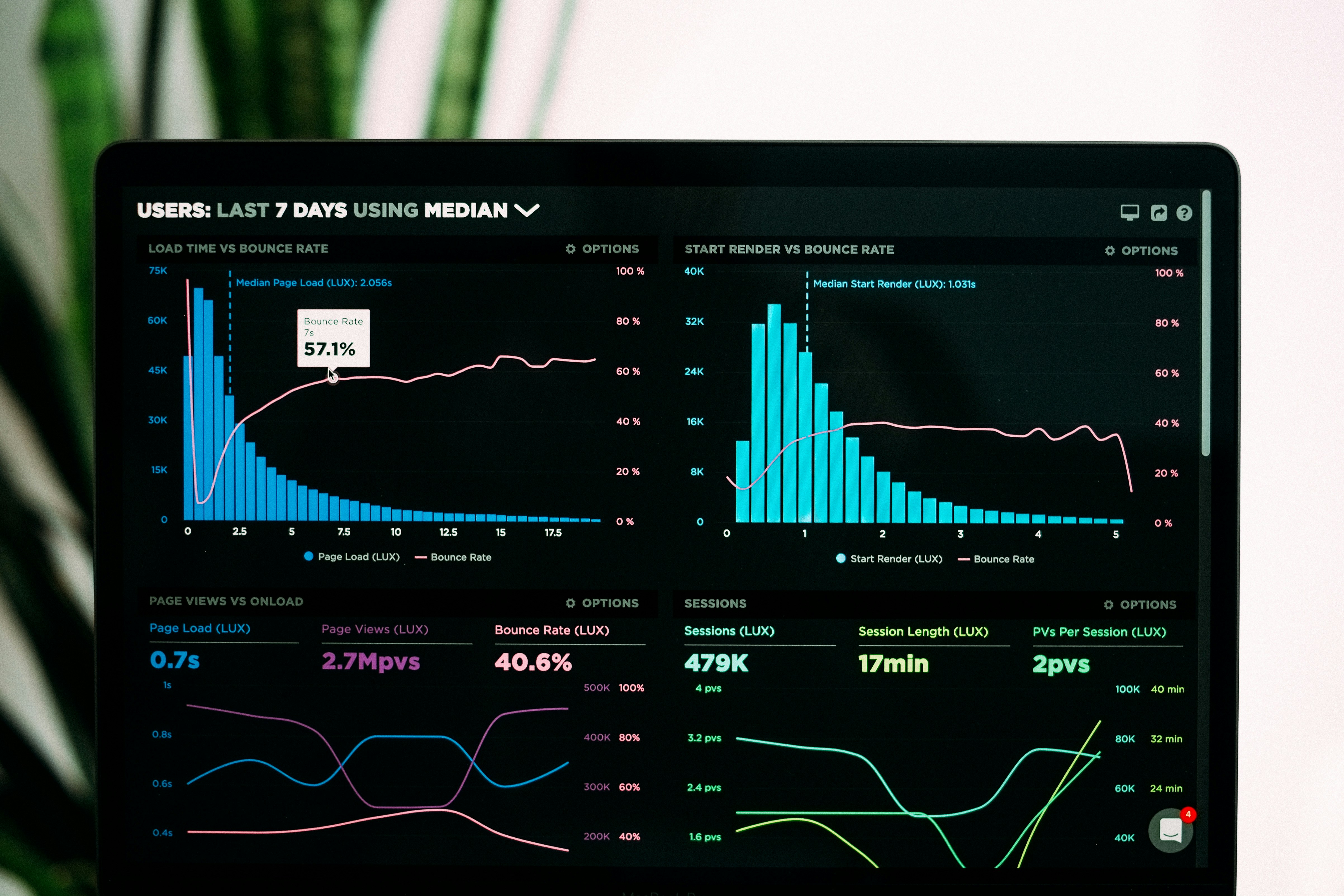Integrating Artificial Intelligence into the Revenue Management Culture of a Hotel Group
May 18, 2024 | by onrevenue.net


Introduction to Revenue Management in Hotels
Revenue management in the hotel industry is a strategic approach aimed at optimizing room rates, occupancy levels, and overall profitability. At its core, it involves the use of data analytics and market insights to forecast demand, set competitive pricing, and manage room inventory efficiently. By aligning the right product with the right customer at the right time and price, hotels can maximize their revenue potential.
Traditional Approach vs. AI
Traditionally, revenue management has relied heavily on historical data and manual analysis. Revenue managers would review past performance, competitor rates, and market trends to make informed decisions. While this approach has been effective to a certain extent, it comes with its own set of challenges. The dynamic nature of the hospitality industry, characterized by fluctuating demand and competition, often makes it difficult to maintain optimal pricing and occupancy levels consistently. Additionally, the manual processes involved can be time-consuming and prone to human error, potentially leading to missed opportunities and suboptimal revenue outcomes.
With the advent of artificial intelligence (AI), the landscape of revenue management is undergoing a significant transformation. AI can process vast amounts of data at unprecedented speeds, offering real-time insights and predictive analytics that are beyond the capabilities of traditional methods. By leveraging machine learning algorithms and advanced analytics, AI can identify patterns and trends that might not be immediately apparent to human analysts. This enables hotels to make more accurate forecasts, optimize pricing strategies, and enhance their overall revenue management culture.
In essence, the integration of AI into revenue management holds the promise of revolutionizing how hotels operate, allowing them to stay ahead of market fluctuations and make data-driven decisions with greater precision. As we delve deeper into this topic, we will explore the specific ways in which AI can be implemented and the tangible benefits it brings to the hospitality sector.
The Role of Artificial Intelligence in Modern Revenue Management
Artificial intelligence (AI) has revolutionized various industries, and the hotel sector is no exception. The integration of AI into revenue management systems has transformed the way hotel groups maximize their financial performance. By leveraging AI technologies such as machine learning, predictive analytics, and data mining, hotels can now analyze massive datasets with unprecedented speed and accuracy.
Machine learning, a subset of AI, enables revenue management systems to learn from historical data and adapt to new patterns. This continuous learning process allows for more precise forecasting, helping hotel managers predict demand fluctuations and adjust pricing strategies accordingly. Predictive analytics takes this a step further by using statistical algorithms and machine learning techniques to identify future trends based on current and past data. This capability is invaluable for creating dynamic pricing models that respond in real-time to market conditions.
Data mining is another critical component in the AI toolkit for revenue management. By sifting through vast amounts of data from various sources, such as booking patterns, competitor rates, and customer reviews, AI can uncover hidden insights that might be missed by human analysts. These insights enable hotel groups to make more informed decisions about room pricing, promotional strategies, and inventory management.
The efficiency of AI in processing and analyzing data far outpaces human capabilities. Traditional revenue management practices often rely on manual data analysis, which can be time-consuming and prone to error. In contrast, AI-driven systems can handle complex datasets swiftly and accurately, providing hotel managers with actionable insights in a fraction of the time. This enhanced efficiency not only improves forecasting accuracy but also allows for more agile and responsive pricing strategies.
Incorporating AI into the revenue management culture of a hotel group fosters a data-driven approach to decision-making. By harnessing the power of AI, hotels can stay ahead of market trends, optimize their pricing strategies, and ultimately achieve higher revenue and profitability. As AI technology continues to evolve, its role in revenue management is set to become even more integral, paving the way for smarter, more efficient hotel operations.
Assessing the Current Revenue Management Practices
Before embarking on the integration of artificial intelligence (AI) into the revenue management culture of a hotel group, it is imperative to conduct a thorough assessment of the current revenue management practices. This foundational step ensures that the integration process is both seamless and effective, laying the groundwork for a successful transition.
One of the primary methods for evaluating existing processes is through comprehensive data analysis. This involves scrutinizing historical data, current pricing strategies, booking patterns, and market trends. By doing so, the hotel group can identify areas where revenue management strategies are excelling and where improvements are needed. Such analysis provides invaluable insights into the efficacy of current practices and highlights specific pain points that may hinder optimal revenue performance.
In addition to data analysis, conducting internal audits and reviews of current systems is crucial. This involves a detailed examination of the technology and tools currently in use, as well as the methodologies employed by the revenue management team. An understanding of these elements is essential for determining the readiness of the organization to assimilate AI into its operations.
Engaging key stakeholders in this assessment phase is another critical component. Revenue managers, IT professionals, marketing teams, and front-line staff all play significant roles in the revenue management ecosystem. Their input is vital for gaining a comprehensive understanding of the specific needs and challenges faced by the organization. Regular meetings, workshops, and surveys can facilitate this collaborative approach, ensuring that all perspectives are considered.
Finally, identifying and understanding the specific needs of the organization is paramount. Every hotel group has unique characteristics and operational nuances that must be taken into account. Tailoring the assessment process to these specificities ensures that the subsequent integration of AI is customized to address the unique challenges and opportunities within the organization.
Through these multifaceted evaluation methods, a hotel group can establish a clear baseline of its current revenue management practices, setting the stage for a strategic and well-informed integration of artificial intelligence.
Choosing the right AI tools and technologies is a crucial step for any hotel group aiming to enhance its revenue management culture. With a plethora of options available, the selection process can indeed be overwhelming. However, focusing on a few key criteria can simplify this task.
Scalability
Firstly, scalability should be a primary consideration. The chosen AI technology must be capable of growing with your hotel group. Whether your portfolio expands or your data volume increases, the AI tool should seamlessly adapt to these changes without significant overhauls or additional costs.
Ease of Integration
Secondly, ease of integration is critical. The AI tool should smoothly integrate with your existing systems, such as property management systems (PMS) and central reservation systems (CRS). This ensures that the revenue management processes remain uninterrupted, and data flows effortlessly between different platforms. Tools with robust API support often facilitate easier integration.
User-Friendliness
User-friendliness is another essential factor. The AI technology should be intuitive and easy to use for your revenue management team. Complex interfaces can lead to user frustration and reduced productivity. Therefore, tools that offer comprehensive training and support can be advantageous, ensuring that your staff can leverage AI capabilities effectively.
Cost
Cost considerations cannot be ignored. It’s vital to evaluate the total cost of ownership, which includes upfront costs, subscription fees, and any additional expenses for training or support. Balancing cost with the features and benefits provided by the AI tool is essential for achieving a favorable return on investment.
Case Studies
Examining case studies of successful AI implementations can offer valuable insights. For instance, several leading hotel groups have reported significant improvements in revenue management by adopting AI-driven tools. These case studies often highlight the real-world benefits and challenges encountered, helping you make a more informed decision.
In conclusion, careful consideration of scalability, ease of integration, user-friendliness, and cost can guide hotel groups in selecting the right AI tools and technologies. By learning from successful implementations, hotel groups can effectively integrate artificial intelligence into their revenue management culture, driving both efficiency and profitability.
Implementing AI Solutions: Step-by-Step Guide
Integrating artificial intelligence into the revenue management culture of a hotel group requires a structured approach to ensure a seamless transition. The initial step involves setting up a robust data infrastructure. This entails gathering and organizing historical data, current booking trends, and market analytics. Ensuring data accuracy and completeness is crucial, as AI-driven insights and predictions are only as reliable as the data they are based on.
Once the data infrastructure is in place, the next step is training the staff. It’s imperative to educate revenue management teams on the fundamentals of AI and how it will enhance their decision-making capabilities. Comprehensive training sessions should cover both theoretical knowledge and practical applications. This will help staff understand the benefits of AI, mitigate resistance to change, and foster a revenue management culture that embraces technological advancements.
Integrating AI with existing systems forms the core of the implementation process. Begin by selecting AI solutions that are compatible with your current revenue management systems. Collaboration with IT departments and AI vendors is essential to ensure smooth integration. This phase may involve customizing the AI software to align with specific operational needs of the hotel group. Additionally, ensure that there is a feedback loop in place so that the AI system can learn and adapt over time based on real-world performance.
Running pilot tests is a critical step before full-scale deployment. Choose a few properties within the hotel group to implement the AI solutions on a trial basis. Monitor the performance closely, analyze the results, and gather feedback from the revenue management team. Pilot tests offer valuable insights and allow for adjustments to be made before rolling out the AI system across the entire hotel group.
For a smooth transition, consider these practical tips and best practices: maintain open communication channels with all stakeholders, provide continuous support and training, and set realistic expectations. By following this step-by-step guide, hotel groups can effectively integrate AI into their revenue management culture, driving innovation and efficiency in their operations.
Training and Upskilling Your Team
For the successful integration of artificial intelligence within a hotel group’s revenue management culture, it is crucial to ensure that the revenue management team is well-versed in the new technologies. The efficacy of these advanced tools depends significantly on the proficiency of the personnel who utilize them. Hence, investing in comprehensive training programs and fostering a culture of continuous learning becomes imperative.
One effective strategy for upskilling the team is through structured workshops. These workshops should be designed to cover various facets of artificial intelligence and its application in revenue management. By engaging professionals in interactive sessions, they can gain hands-on experience and a thorough understanding of AI-driven tools and methodologies. Workshops also provide a platform for team members to ask questions and clarify doubts, thereby solidifying their knowledge base.
In addition to workshops, online courses offer a flexible and scalable approach to continuous education. Many reputable institutions and platforms provide courses tailored to AI and revenue management. These courses often include modules on data analytics, machine learning, and predictive modeling, which are vital for understanding and leveraging AI in revenue management. Online courses allow team members to learn at their own pace, making it easier to balance work and study.
Collaboration with AI experts can further enhance the team’s capabilities. Inviting experts for guest lectures or consultative sessions can provide valuable insights and practical knowledge. Such collaborations can help bridge the gap between theoretical understanding and real-world application, ensuring that the team is well-equipped to implement AI solutions effectively.
Ultimately, fostering a revenue management culture that embraces continuous learning and skill development is essential. Encouraging team members to stay updated with the latest advancements in AI and revenue management through industry seminars, webinars, and professional networks can contribute to a more informed and competent team. By prioritizing training and upskilling, hotel groups can maximize the benefits of artificial intelligence and drive better revenue management outcomes.
Once artificial intelligence systems are implemented within a hotel group’s revenue management culture, the next vital step is to ensure these tools are delivering the expected outcomes. Continuous monitoring is paramount to achieving this objective. Performance metrics and key performance indicators (KPIs) should be meticulously tracked to evaluate the effectiveness of AI-driven strategies. Regularly reviewing metrics such as occupancy rates, average daily rates, and revenue per available room can provide valuable insights into an AI system’s performance.
Gathering feedback from various stakeholders, including revenue managers, front-line staff, and even guests, is crucial. This collective input helps in identifying any discrepancies or areas where AI-driven solutions may fall short. For instance, a sudden dip in booking rates might prompt a deeper analysis to determine if the AI system’s pricing algorithms need recalibration.
Furthermore, it is essential to make iterative adjustments based on the performance data and feedback collected. AI systems thrive on data, and their accuracy improves over time as they learn from new information. Therefore, periodic fine-tuning of algorithms is necessary to maintain their relevance and effectiveness in dynamic market conditions.
Regular updates and maintenance of AI systems are equally important. The hospitality industry is characterized by rapid changes in market trends, consumer behavior, and economic factors. Ensuring that AI tools are updated with the latest data sets and algorithms can help in adapting to these changes seamlessly. Scheduled maintenance checks can also preemptively address any technical issues, ensuring that the AI systems run smoothly without interruptions.
Incorporating these practices into the revenue management culture promotes a proactive approach. By continuously monitoring, refining, and updating AI-driven revenue management systems, hotel groups can better navigate the complexities of market dynamics, ultimately enhancing their competitive edge and optimizing their revenue streams.
Future Trends and Innovations in AI for Revenue Management
As the hospitality industry evolves, integrating artificial intelligence (AI) into hotel revenue management becomes increasingly crucial for maintaining competitiveness. Emerging trends and innovations in AI have the potential to revolutionize the way hotel groups approach revenue management, offering more accurate forecasts, personalized customer experiences, and streamlined operations.
One significant trend is the advancement in AI algorithms. Machine learning techniques are becoming more sophisticated, allowing for the development of predictive models that can analyze vast amounts of data with unprecedented accuracy. These models can predict market demand, optimize pricing strategies, and identify patterns that human analysts might overlook. This evolution in AI algorithms empowers hotel groups to make data-driven decisions, thereby enhancing their revenue management capabilities.
The use of big data is another transformative trend. By harnessing the power of big data, hotel groups can gain insights from a multitude of sources, including booking trends, customer reviews, and social media activity. AI systems can process and analyze this data in real-time, offering actionable insights that can inform marketing strategies, pricing models, and inventory management. The integration of big data analytics with AI enables a more holistic approach to revenue management, ensuring that decisions are based on comprehensive and up-to-date information.
AI-driven customer personalization is also poised to play a pivotal role in the future of hotel revenue management. Personalized experiences are becoming a key differentiator in the hospitality industry. AI can analyze individual customer preferences, booking history, and behavior patterns to tailor offerings and services. This level of personalization not only enhances the guest experience but also drives higher revenue through targeted promotions and upselling opportunities.
In conclusion, staying ahead in the competitive landscape of hotel revenue management requires embracing these future trends and innovations in AI. Advancements in AI algorithms, the strategic use of big data, and the potential of AI-driven customer personalization will be instrumental in shaping the next generation of revenue management practices within the hotel industry.
RELATED POSTS
View all



